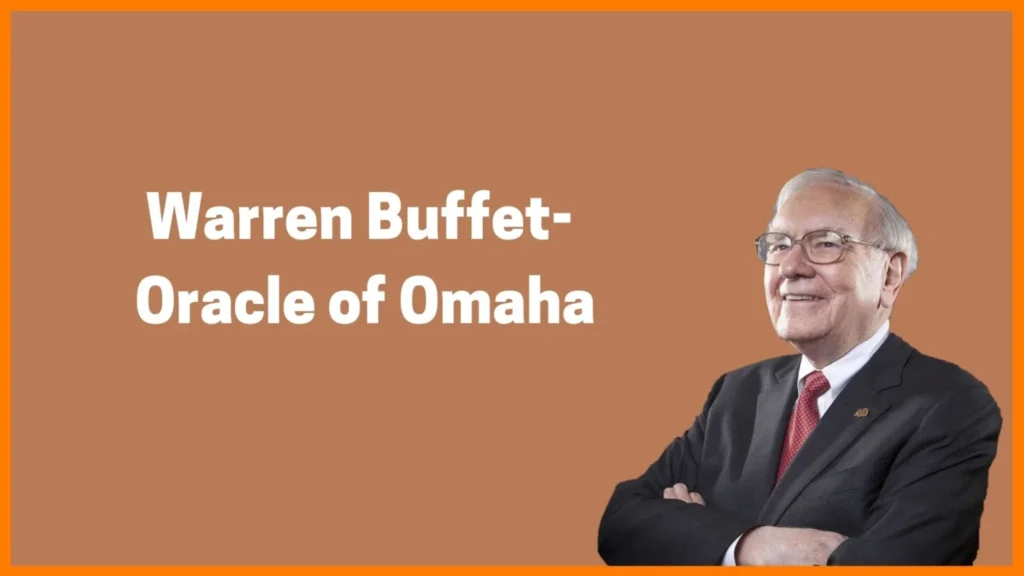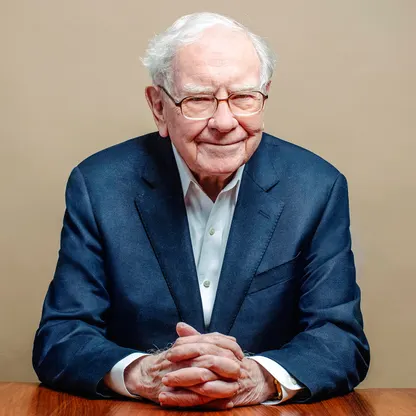Warren Buffett, often called the “Oracle of Omaha,” is one of history’s most successful investors. His journey, from selling chewing gum door-to-door to becoming a billionaire, is truly inspirational. But who is Warren Buffett, and why is his investing method so successful?
Early Life and Background
Warren Edward Buffett was born on August 30, 1930, in Omaha, Nebraska. His father, Howard Buffett, was a stockbroker and a U.S. Congressman, while his mother, Leila, was a homemaker. Warren’s early exposure to business came from his father’s brokerage, and his entrepreneurial spirit was evident from a young age.
Buffett displayed a keen interest in business and investing as a child. At the age of six, he bought six packs of Coca-Cola from his grandfather’s grocery store, selling them door-to-door for a profit. By the age of eleven, Buffett had already started investing in the stock market, buying shares of Cities Service Preferred for himself and his sister. This early start foreshadowed his future success in the financial world.

Education and Early Career
Warren Buffett studied at the Wharton School of the University of Pennsylvania for two years before transferring to the University of Nebraska, where he earned his degree in Business Administration. After being rejected by Harvard Business School, he enrolled at Columbia Business School, studying under Benjamin Graham, the famous investor and author of “The Intelligent Investor.”
Graham’s value Investing Philosophy greatly Influenced Buffett. After Graduating from Columbia in 1951, Buffett worked for Graham’s Partnership. He learned the ins and outs of value Investing. Later, Buffett returned to Omaha and started his own investment Partnership, Buffett Partnership Ltd. This marked the beginning of his journey to becoming a top Investor.
The Birth of Berkshire Hathaway
In 1962, Warren Buffett began buying shares in a textile manufacturing company called Berkshire Hathaway. Despite its struggles, Buffett saw value in the company and eventually took control of it. Under Buffett’s leadership, Berkshire Hathaway transformed from a struggling textile firm into a diversified group of companies with interests in various industries, including insurance, utilities, railroads, and consumer goods.
One of Buffett’s key strategies was, indeed, to use Berkshire Hathaway’s cash flow from its insurance operations to acquire undervalued companies and investments. Consequently, this approach allowed Berkshire to expand its portfolio and, ultimately, generate substantial returns for its shareholders.
Over time, Berkshire Hathaway became known for its impressive growth and its status as a powerhouse in the investment world.
Investment Philosophy
Buffett’s investment strategy relies on value investing, a concept Graham introduced. This approach involves buying undervalued stocks with strong fundamentals, like a healthy balance sheet and good management. Rather than seeking quick profits, Buffett values patience and long-term growth.
He famously said, “Price is what you pay; value is what you get.” Buffett emphasizes understanding a company’s intrinsic value and buying it below its true worth. This requires thorough research and patience.
Buffett also invests in companies with a strong track record and a business model he understands. He avoids industries or companies he doesn’t fully grasp, staying within his “circle of competence.” This principle helps him make informed decisions and reduce risks.
Notable Investments and Acquisitions
Warren Buffett’s investment strategy has led to several notable investments and acquisitions over the years. Some of the most significant ones include:
- Coca-Cola: In 1988, Buffett invested $1 billion in Coca-Cola, acquiring a significant stake in the company. This investment has been highly successful, with Coca-Cola becoming one of Berkshire Hathaway’s most valuable holdings.
- American Express: Buffett began investing in American Express in the 1960s, and his investment in the company has yielded substantial returns over the decades. His confidence in American Express has been a testament to his long-term investment approach.
- BNSF Railway: In 2009, Berkshire Hathaway acquired BNSF Railway, one of the largest freight rail networks in North America. This acquisition was a strategic move to diversify Berkshire’s portfolio and gain exposure to the transportation sector.
- Apple: In recent years, Buffett’s investment in Apple Inc. has garnered significant attention. Berkshire Hathaway became one of Apple’s largest shareholders, benefiting from the tech giant’s impressive growth and profitability.
Leadership Style and Management
Buffett is known for his unique leadership style, which emphasizes transparency, trust, and autonomy. Specifically, he gives his managers the freedom to run their businesses with minimal interference. Consequently, this fosters accountability and innovation within Berkshire Hathaway’s diverse companies.
He also values clear communication with shareholders. His annual letters to Berkshire Hathaway shareholders are widely read and respected for their insights into the company’s performance, strategy, and economic trends. These letters offer valuable lessons in business and investing.
Personal Life and Philanthropy
Despite his immense wealth, Warren Buffett is known for his modest lifestyle and philanthropic efforts. He still resides in the same house in Omaha that he purchased in 1958 and is known for his a money-saving move. Buffett’s personal values extend to his money-giving tries, as he has pledged to give away the majority of his wealth to charitable causes.
In 2010, Buffett teamed up with Bill and Melinda Gates to start the Giving Pledge, a promise made by some of the world’s richest people to give away at least half of their wealth to charity. Since that time, Buffett has regularly demonstrated his commitment to philanthropy; moreover, he has already given away billions to various charities. Specifically, his contributions have focused on key areas such as education, healthcare, and poverty reduction.
Conclusion
“Warren Buffett, known as the “Oracle of Omaha,” is, indeed, a symbol of financial wisdom, ethical business, and philanthropy. Furthermore, his journey from a passionate young boy to one of the world’s top financial figures not only shows vision, but also discipline and perseverance.”
As we reflect on Warren Buffett’s remarkable career, it’s clear that, in addition, his legacy extends far beyond the world of investing. Moreover, his contributions to the field of finance, his leadership style, and his philanthropic efforts have left an indelible mark on the world. Therefore, for anyone interested in finance, investing, or personal development, Warren Buffett’s life and work offer invaluable lessons and inspiration
You might also be interested in Top 10 Movies on the Stock Market: A Comprehensive Review
If you don’t have enough time to read the blog you may like our summary video on the blog.

click on the link https://lumen5.com/user/aggarwalpiyush814/the-legacy-of-warren-mf8wi/
